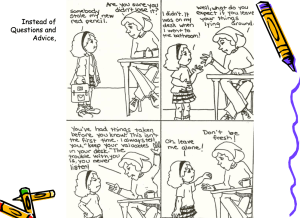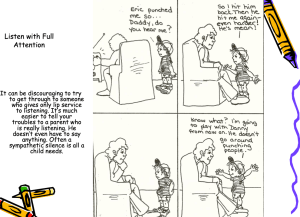Classic Parenting : How to Talk So Your Kids Will Listen & Listen So Your Kids Will Talk
August 10, 2021

The manner in which we talk to our kids plays a very prominent role on their learning and ability to listen to us. Its important to know that we are constantly modelling to our kids on how to act and behave, and the way we engage with them fits right into this category.
The way we speak to them and others is showing them how we want them to respond to us. Its interesting to know that there are three major different communication style that is being used by parents when talking with their kids, no matter the social economic class of such parents.
Aggressive Communication Style
These are the type of parents that shout on their kids a lot, put their kids down and use attacking words. This style bring out the worst in young children and the children respond in many different ways, mainly by acting out more, feeling fearful, yelling back and ignoring their parents’ orders.
Passive communication Style
These are the type of parents who are easy on their wards and engage with their children by muttering soft, cautious words and tones, and at the end of the day their kids often walk all over them. Unfortunately, these parents are so passive that sometimes when they are pushed to their limits, they suddenly change their tone into an aggressive one.
Assertiveness Communication Style
This is by far the most effective way to interact with kids at all levels. Assertive communication style is firm, consistent, clear, positive, warm and confident. Assertively communicating with children is a real skill, yet it clearly demonstrate to kids that parent know what they’re talking about and to listen.
The following are top tips for improving the way we talk to our kids and listen so they too can talk :
1.
Helping Children Deal with their Feelings.
Children need to have their feelings accepted and respected.
- Acknowledge their feelings with a word.



- Give the feeling a name.


- Give the child his wishes in fantasy


- Listen quietly and attentively.

Giving and listening with total attention to any request or clarification the child want to get from the parent goes a long way in child development.

All feeling from the children can be accepted, however certain action must be limited.
2. Engaging Cooperation with the children
What most parents do :
- Name-call
- Threaten.
- Lecture
- Compare

The best approach is to describe what you see or describe the problems that the children can learn from the experience.
- Say it with a word

- Describe what you feel

- Give Information

- Write a note (sing a song?!)

3. Encouraging Autonomy
• Toddlers and teenagers aren’t that different….
- Show respect for a child’s struggle
- Let children make choices
- Encourage children to use sources outside the home
- Don’t ask too many questions
- Don’t rush to answer questions
- Don’t take away hope



Encourage children to use sources outside the home


3. Praise and Self-Esteem
- Describe what you see.
- Describe what you feel.
- Sum up the child’s praise-worthy behavior with a word.


